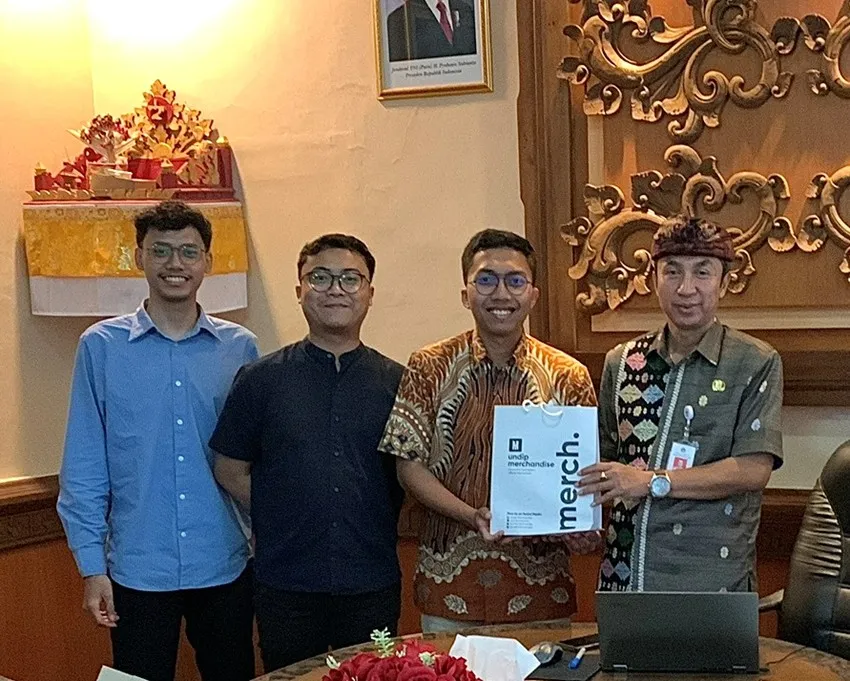Bali, September 11, 2025 – The research team from the Department of Public Administration conducted a study under the World Class Research University (RWCU) scheme in the coastal areas of Bali Province. The team consisted of Prof. Dr. Dra. Kismartini, M.Si., Irfan Murtadho Yusuf, S.A.P., MPM, and Yoga Aldi Saputra, S.A.P., MPA. This research was carried out in collaboration with a student from the Master of Public Administration program, Muhammad Yanwar Darmadi Putra, S.A.P.
The study, titled “Collaborative Governance in Sustainable Coastal Management (Comparative Study Between Coastal Islands in Indonesia and Malaysia),” aims to compare collaborative management approaches in Bali Province and the Langkawi Islands in Malaysia for sustainable coastal management. It also examines how various stakeholders (government, business, community, academia, and media) contribute to achieving sustainable development goals in coastal areas of Indonesia and Malaysia.
The research activities took place over three days, from September 11–13, 2025. Stakeholders visited and interviewed included the Bali Provincial Development Planning Agency (Bappeda), Bali Provincial Forestry and Environment Agency, Bali Provincial Fisheries and Marine Agency, Denpasar City Tourism Office, traditional leaders in Denpasar, the Coastal Sustainability Foundation (Yayasan Pesisir Lestari Bali), local coastal communities in Bali, and tourists in Kuta and Sanur.
This research was warmly welcomed by Mr. I Wayan Wiasthana Ika Putra, S.Sos., M.Si., Head of Bappeda Bali Province. Mr. Wayan explained that coastal management in Bali has been integrated between land and sea through Bali Provincial Regulation No. 2 of 2023. The Balinese community strongly upholds the philosophy of Tri Hita Karana, which emphasizes three elements for harmony and balance: the relationship between humans and God, humans and other humans, and humans and their environment. This philosophy underpins prosperity, peace, and happiness, and in this context, ensures sustainable coastal tourism while preserving environmental integrity, distinguishing Bali’s tourism from other destinations.
Moreover, the rapid development of tourism in Bali has caused local communities to be marginalized due to land conversion for tourism activities. This was one of our key findings, which will be compared with the situation in the Langkawi Islands, Malaysia. It is hoped that the results of this study can serve as a reference for both the government and future researchers in coastal area management.







0 Comments